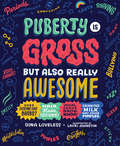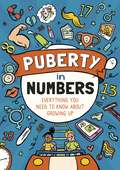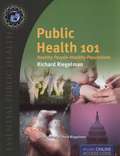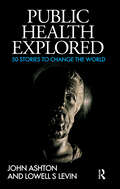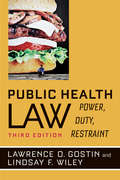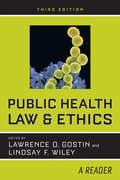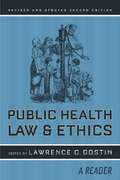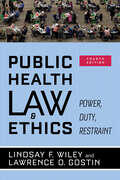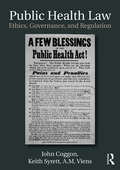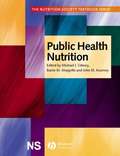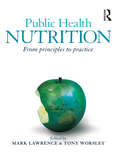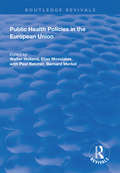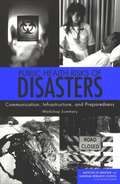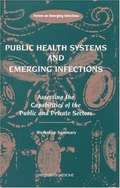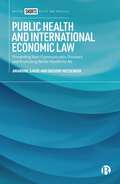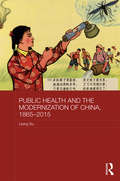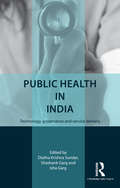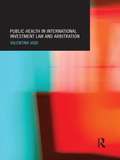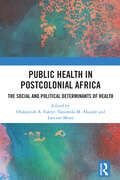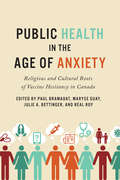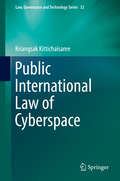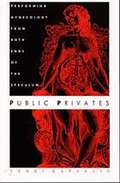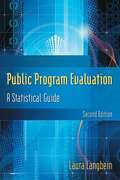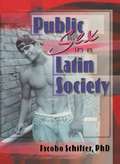- Table View
- List View
Psíquico: O Guia de Desenvolvimento de Psíquico para fortalecer suas Habilidades Psíquicas
by Thayller Weverton Barp Jen SolisDesbloqueie suas habilidades psíquicas hoje Você sabia que você nasceu com habilidades psíquicas? Sim, todos nós somos psíquicos, porém essas habilidades ficam suprimidas até a hora que conseguimos descobrir-las. Você gostaria de aprender os segredos para usar essas habilidades? Você pode chegar ao seu real potencial com a informação correta, guia, treinamento e experiência. Descubra todas suas forças e do que você é capaz com o treinamento psíquico apropriado. Todos nós temos potencial para sermos especiais. Esse livro contêm poderosas informações, dicas e conselhos que vão ajudar você a desenvolver habilidades psíquicas especiais. Nesse livro, eu irei mostrar como refinar sua intuição, como você pode escutar verdadeiramente o seu subconsciente ou o "eu interior", conectar com a natureza, aprimorar a consciência, como abrir o seu terceiro olho, como você pode chegar a uma consciência superior e muito mais. Eu contarei sobre a aura humana e como nós podemos lê-la, sobre o simbolismo, e irei lhe mostrar passos fáceis para fortalecer suas habilidades psíquicas. Descubra a felicidade de desbloquear suas habilidades psíquicas naturais. O desenvolvimento psíquico não é apenas sobre algumas habilidades especiais. Você irá aprender a acreditar no próprio julgamento, construir sua auto estima e auto consciência , maximizar sua habilidade criativa, aumentar a clareza, uma vida cheia de propósitos que você pode usar para ajudar os outros, e atingir um profundo senso de relaxamento e paz. Existem vários benefícios de aprender sobre o ser psíquico. Esse é o seu primeiro passo para uma nova vida, uma vida de muitas mudanças. Com as páginas desse livro, você encontrará a resposta para essas questões e mais. Algumas questões e tópicos discutidos: •Entenda suas habilidades psíquicas •Lista de todas as capacidades psíquicas •O Sub
Puberty Is Gross but Also Really Awesome
by Gina LovelessA first-of-its-kind inclusive puberty guide that celebrates the good and completely awful parts of puberty. Filled with jokes and countless facts to put this stage in perspective--this book is bound to be every kid's new best friend!Puberty . . . is pretty gross for pretty much everyone. It's a smelly, hairy, sticky, and (worst of all) totally confusing time! But did you know there's a lot about puberty that makes it REALLY AWESOME?Get the whole picture with this honest, humorous, and empowering survival guide to the tween years. It's packed with straighforward illustrations, easy-to-understand scientific information, interesting studies, and tips from experts, covering everything from breast development and gender identity to acne and mental health.No matter your gender, sexuality, or race, this book is for you. Never shying away from the tough stuff, this utterly modern take on puberty is the resource this generation needs! Welcome to modern puberty--it's transformative, kind of gross, but undeniably AWESOME!
Puberty in Numbers: Everything you need to know about growing up
by Liz FlavellEmbarrassment can do one! This entertaining guide to puberty gives you all the information you need to hold your head up and enter puberty armed with solid facts. Puberty need not be scary and unknown. With a colourful and cool design, and bite-size text with attention-grabbing numbers and visuals, find out the facts and stats behind growing up, from how much extra hair you'll grow, to how puberty might make you feel, and what happens when puberty hormones kick in. Written in a straightforward, down-to-earth way, this book will give you all the information you need to understand and be reassured by any changes puberty throws at you. The book emphasises body positivity and reassures you that everything you are experiencing is totally normal! It also includes a section on gender identity and sexuality. For children aged 9+, this book is an excellent resource for the PSHE curriculum, and the 2020 RSE curriculum, including consent. While it is perfect for parents, teachers and carers to use for discussion topics, it is also accessible for children to read for themselves.
Public Health 101: Healthy People, Healthy Populations
by Richard RiegelmanThis book provides a big-picture, population perspective on the determinants of health and disease and the tools available to protect and promote health. It examines the full range of options for intervention including use of the health care system, the public health system, and society-wide interventions. Students will learn how public health affects them. Using case studies, vignettes, and extensive examples, they will learn and apply frameworks for thinking about the issues of public health.
Public Health Explored: 50 Stories to Change the World
by John AshtonAn understanding of public health has never been more important!There has been a growing interest in public health, driven by concerns for social justice and sustainability, but it is currently in the headlines as never before. The failure of governments to get to grips with the Covid-19 pandemic has demonstrated widespread ignorance of the basics of a public health approach to threats to health and well-being.Relevant to all interested individuals but particularly students and professionals within nursing, medicine, social work and public health, this book encourages critical debate and reflection to develop a deep understanding of the complexities of public health issues. It offers 50 powerful stories and sayings around public health that could just change the world! Accompanied by searching questions for discussion and case studies that provide context and link each aphorism to a key event or theme, important messages around public health are extracted and explored.
Public Health Law
by Lawrence O. Gostin Lindsay F. WileyLawrence O. Gostin's seminal Public Health Law is widely acclaimed as the definitive statement on public health law at the turn of the twenty-first century. In this bold third edition, Gostin is joined by Lindsay F. Wiley to analyze major health threats of our time such as chronic diseases, emerging infectious diseases, antimicrobial resistance, bioterrorism, natural disasters, opiod overdose, and gun violence. The authors draw on constitutional law, administrative law, local government law, and tort law to develop their conception of law as a tool for protecting the public's health. The book creates an intellectual framework for modern public health law and supports that framework with illustrations of the scientific, political, and ethical issues involved. In proposing innovative solutions for the future of the public's health, Gostin and Wiley's essential study provides a blueprint for public and political debates to come. New issues covered in this edition: * Corporate personhood rights raised in response to regulations of tobacco, food and beverages, alcohol, firearms, prescription drugs, and marijuana. * Local government authority to protect the public's health. * Deregulation and harm reduction as modes of public health law intervention. * Taxation, spending, and alteration of the socioeconomic environment as modes of public health law intervention. * Access to health care as a strategy for protecting the public's health. * Taxation, spending, licensing, zoning, and shared-use strategies for chronic disease prevention. * The public health law perspective on violence and injury prevention. * Health justice as a framework for reducing health disparities and protecting the public's health.
Public Health Law and Ethics: A Reader (California/milbank Books On Health And The Public #Vol. 4)
by Lawrence O. Gostin Lindsay F. WileyPublic Health Law and Ethics: A Reader, 3rd Edition probes the legal and ethical issues at the heart of public health through an incisive selection of judicial opinions, scholarly articles, and government reports. Crafted to be accessible to students while thorough enough for use by practitioners, policy makers, scholars, and teachers alike, the reader can be used as a stand-alone resource or alongside the internationally acclaimed Public Health Law: Power, Duty, Restraint, 3rd Edition. This updated edition reader includes new discussions of today’s most pressing health threats, such as chronic diseases, emerging infectious diseases, antimicrobial resistance, biosecurity, opioid overdose, gun violence, and health disparities.
Public Health Law and Ethics: Power, Duty, Restraint
by Lawrence O. Gostin Lindsay F. WileyPublic Health Law and Ethics defines these fields for a new generation. This bold and updated edition probes how the Covid-19 pandemic has fundamentally changed the legal landscape for public health practice. Through incisive analysis of public health legislation, judicial opinions, and scholarly research, this accessible primer articulates the scope and limits of governmental powers and duties to protect the public's health, builds a case for why social justice must be prioritized as a core value of public health ethics, examines the role of the courts in striking down democratically enacted laws, and covers today’s most pressing health issues, such as chronic diseases, opioid overdoses, gun violence, disability rights, sexual and reproductive autonomy, and racial and gender equity. The book creates a framework for ensuring public health interventions are based on sound scientific evidence and consistent with ethical values, revealing complex answers to the essential question of what community members owe one another when it comes to health.
Public Health Law: Ethics, Governance, and Regulation
by John Coggon A. M. Viens Keith SyrettPublic health activity, and the state’s public health responsibilities to assure the conditions in which people can be healthy, can only be achieved through different means of social coordination. This places law and regulation at the heart of public health. They are fundamental both to methods of achieving public health goals and to constraints that may be put on public health activity. As such, trainees, practitioners, and leaders in public health need to understand the breadth and nature of wide-ranging legal and regulatory approaches and the place of ethics in public health. Public Health Law, written by three leading scholars in the field, defines and examines this crucial area of study and practice. It advances an agenda whose scope extends far beyond that covered in traditional medical law and health care law texts. The authors provide an account of the scale of contemporary public health policy and practice and explain its philosophical depths and implications and its long legislative and regulatory history. They advance a definition of the field and explore how different legal approaches may serve and advance or constrain and delimit public health agendas. This ground-breaking book presents the field of public health ethics and law and goes on to examine the impact within the UK of private law, criminal law, public law, EU and international law, and ‘softer’ regulatory approaches. It is a primary point of reference for scholars, practitioners, and leaders working in public health, particularly those with an interest in law, policy, and ethics.
Public Health Nutrition
by Michael J. Gibney Lenore Arab John M. Kearney Barrie M. MargettsAs an academic subject, nutrition has grown enormously in recent years and with it the need for specialist textbooks on the subject.<P><P> In response to this need, a decision was taken by The Nutrition Society to produce a ground-breaking series of four textbooks, of which Public Health Nutrition is the third. The books in the series:Provide students with the required scientific basis in nutrition, in the context of a systems and health approach.Enable teachers and students to explore the core principles of nutrition and to apply these throughout their training to foster critical thinking at all times. Each chapter identifies the key areas of knowledge that must be understood and also the key points of critical thought that must accompany the acquisition of this knowledge.Are fully peer reviewed to ensure completeness and clarity of content, as well as to ensure that each book takes a global perspective and is applicable for use by nutritionists and on nutrition courses throughout the world.Public Health Nutrition is an essential purchase for students majoring in nutrition and dietetics. Public health nutrition as a subject is growing immensely in importance, taking into account the real potential to reduce the burden of non-communicable chronic disease through diet. Professionals in nutrition, dietetics, food science, medicine, community health care and many related health care areas will all find much of great use within the book's covers. Libraries in all universities, medical schools and establishments teaching and researching in these subject areas should have several copies on their shelves.OTHER BOOKS IN THE NUTRITION SOCIETY TEXT BOOK SERIES:Introduction to Human Nutrition: ISBN 0 632 05624 XNutrition & Metabolism: ISBN 0 632 05625 8Clinical Nutrition: ISBN 0 632 05626 6
Public Health Nutrition: From principles to practice
by Mark LawrenceA ground breaking text in the developing field of public health nutrition.'from the foreword by Basil S. Hetzel At last! A book that approaches public health nutrition in a scholarly, scientific and evidence based manner that at the same time delivers the practical competencies and skills required by the professional Public Health Nutritionist.'Elizabeth Belton, Senior Lecturer, School of Life Sciences, The Robert Gordon University.How can the nutritional health of populations be improved through action at local, national and global levels? The work of public health nutritionists is to bring population-wide perspectives to the relationship between food and health. Systematically drawing on international research, in Public Health Nutrition leading international practitioners present both the theoretical underpinnings and applied nature of the field of public health nutrition. The book is peer reviewed and divided into four sections:* Principles - presents conceptual frameworks, solutions, responsibilities and outcome measures, philosophical and evidential dimensions, standards and dietary guidelines.* Populations - explores groups for whom nutrition is especially relevant, providing analysis of the food and health relationship from physiological, social, cultural, political and economic perspectives. * Priorities - examines key issues including vulnerable populations, obesity, indigenous nutrition, international nutrition, the nutritional transition, food system trends and sustainability.* Practices - covers professional skills for public health practitioners including monitoring the food and nutrition situation of populations, physical activity, research skills, project management, professional practice, health promotion and communication, policy and politics.Public Health Nutrition is an essential resource for public health practitioners, researchers and administrators, as well as students of nutrition, dietetics and public health wishing to obtain advanced and specialised competencies.
Public Health Policies in the European Union: Challenges And Policy Response (Routledge Revivals #17)
by Elias Mossialos Walter Holland Bernard MerkelFirst published in 1999, this volume recognises that the role and status of public health in Europe has again become increasingly recognized and features contributions on various nations within the European Community. This is not only in individual countries but also in the policies of the European Union as exemplified in the Maastricht and Amsterdam Treaties. This book is a critical account of the present structures and policies of member countries and how policies have evolved within the European Commission. It describes both possible models and needs and contrasts these with the current legislative framework. It thus serves the needs of both practitioners, policy makers, policy analysts and students interested in public health and social policy developments.
Public Health Risks of Disasters: Communication, Infrastructure, and Preparedness
by William H. Hooke Paul G. RogersA report on Public Health Risks of Disasters
Public Health Systems and Emerging Infections: Workshop Summary
by Joshua Lederberg Johnathan R. DavisThe Forum on Emerging Infections was created in 1996 in response to a request from the Centers for Disease Control and Prevention and the National Institutes of Health. The goal of the forum is to provide structured opportunities for representatives from academia, industry, professional and interest groups, and government to examine and discuss scientific and policy issues that relate to research, prevention, detection, and management of emerging infectious diseases. A critical part of this mission has been the convening of a series of workshops. Public Health Systems and Emerging Infections summarizes the fourth in a series of five workshops.With a focus on our knowledge and understanding of the role of private and public health sectors in emerging infectious disease surveillance and response, the participants explored the effects of privatization of public health laboratories and the modernization of public health care. The issues discussed included epidemiological investigation, surveillance, communication, coordination, resource allocations, and economic support.
Public Health and International Economic Law: Preventing Non-Communicable Diseases and Promoting Better Health for All
by Amandine Garde Gregory MessengerAvailable open access digitally under CC-BY-NC-ND licence. Although non-communicable diseases (NCDs) such as cancers, diabetes, and heart diseases are preventable, they have risen dramatically over the last 30 years. This is in part due to increased international trade and foreign direct investment in the tobacco, alcohol and food industries. As governments attempt to regulate these industries, this book raises important and timely questions about the relationship between public health and international trade and investment law. Providing a clear and succinct analysis of the relevant trade and investment regimes and the obligations they impose, this book identifies the key principles that must be considered when formulating and implementing NCD prevention strategies that are both effective and able to withstand legal challenges.
Public Health and the Modernization of China, 1865-2015 (Routledge Studies in the Modern History of Asia)
by Liping BuThis book, based on extensive original research, traces the development of China’s public health system, showing how advances in public health have been an integral part of China’s rise. It outlines the phenomenal improvements in public health, for example the increase in life expectancy from 38 in 1949 to 73 in 2010; relates developments in public health to prevailing political ideologies; and discusses how the drivers of health improvements were, unlike in the West, modern medical professionals and intellectuals who understood that, whatever the prevailing ideology, China needs to be a strong country. The book explores how public health concepts, policies, programmes, institutions and practices changed and developed through social and political upheavals, war, and famine, and argues that this perspective of China’s development is refreshingly different from China’s development viewed purely in political terms.
Public Health in India: Technology, governance and service delivery
by Diatha Krishna Sundar Shashank Garg Isha GargDespite rapid advances in modern medicine and state-of-the-art health care services in the private sector, primary health care in India remains inaccessible to a majority of the population. Besides, even policymakers often do not have access to real-time data to fine-tune their policies or design appropriate research and intervention programmes. Drawing on field experiences, this volume brings together scholars and practitioners to examine public health from different perspectives. It discusses practical and applied issues related to the health sector, especially the role of Information and Communications Technology (ICT); participation of civil society; service delivery; quality evaluation; consumer empowerment; data management; and research and intervention. This book will be useful to scholars, students and practitioners of public health in developing countries such as India. It will also interest policymakers, health care professionals, and departments of public health management and those concerned with community medicine.
Public Health in International Investment Law and Arbitration (Routledge Research in International Economic Law)
by Valentina VadiIs a State free to adopt measures to protect the public health of its citizens? If so, what are the limits, if any, to such regulatory powers? This book addresses these questions by focusing on the clash between the regulatory autonomy of the state and international investment governance. As a wide variety of state regulations allegedly aimed at protecting public health may interfere with foreign investments, a tension exists between the public health policies of the host state and investment treaty provisions. Under most investment treaties, States have waived their sovereign immunity, and have agreed to give arbitrators a comprehensive jurisdiction over what are essentially regulatory disputes. Some scholars and practitioners have expressed concern regarding the magnitude of decision-making power allocated to investment treaty tribunals. This book contributes to the current understanding of international investment law and arbitration, addressing the fundamental question of whether public health has and/or should have any relevance in contemporary international investment law and policy. With a focus on the ‘clash of cultures’ between international investment law and public health, the author critically analyses the emerging case law of investment treaty arbitration and considers the theoretical interplay between public health and investor rights in international investment law. The book also explores the interplay between investment law and public health in practice, focusing on specific sectors such as pharmaceutical patents, tobacco regulation and environmental health. It then goes on to analyze the available means for promoting consideration of public health in international investment law and suggests new methods and approaches to better reconcile public health and investor rights.
Public Health in Postcolonial Africa: The Social and Political Determinants of Health
by Inocent Moyo Olukayode A. Faleye Tanimola M. AkandeThis fascinating, multi-disciplinary collection examines how public health interventions in postcolonial Africa mirror wider manifestations of power in the region. Beyond the role of public health intervention in tackling disease and prolonging life, the book measures the social and political determinant of health which continue to exist in the postcolonial era. The volume features contributions from scholars across both the social sciences and humanities, exploring ongoing debates across a broad range of themes, including: - Infopolitics, biopolitics and healthcare; - Emerging infectious diseases, environment and food cultures; - Health interventions and economic security; - Church administration and healthcare; - Livelihood, sex, sexuality and HIV/AIDS; Offering a fresh and insightful understanding of health issues in this important global region, and including chapters on issues around the Covid-19 pandemic, the book will interest students and researchers across a range of disciplines, including Global Health, Politics and African Studies.
Public Health in the Age of Anxiety: Religious and Cultural Roots of Vaccine Hesitancy in Canada
by Paul Bramadat Centre for Studies in Religion & Society Julie Bettinger Maryse Guay Rêal RoyPublic Health in the Age of Anxiety enhances both the public and scholarly understanding of the motivations behind vaccine hesitancy in Canada. The volume brings into conversation people working within such fields as philosophy, medicine, epidemiology, history, nursing, anthropology, public policy, and religious studies. Rather than an acrimonious debate between advocates and hesitant patients the contributors critically analyze issues surrounding vaccine safety, the arguments against vaccines, the scale of anti-vaccination sentiment, public dissemination of medical research, and the effect of private beliefs on individual decision-making and public health. These essays model and encourage the type of productive engagement that is necessary to clarify the value of vaccines and reduce the tension between pro and anti-vaccination groups.
Public International Law of Cyberspace
by Kriangsak KittichaisareeThis compact, highly engaging book examines the international legal regulation of both the conduct of States among themselves and conduct towards individuals, in relation to the use of cyberspace. Chapters introduce the perspectives of various stakeholders and the challenges for international law. The author discusses State responsibility and key cyberspace rights issues, and takes a detailed look at cyber warfare, espionage, crime and terrorism. The work also covers the situation of non-State actors and quasi-State actors (such as IS, or ISIS, or ISIL) and concludes with a consideration of future prospects for the international law of cyberspace. Readers may explore international rules in the areas of jurisdiction of States in cyberspace, responsibility of States for cyber activities, human rights in the cyber world, permissible responses to cyber attacks, and more. Other topics addressed include the rules of engagement in cyber warfare, suppression of cyber crimes, permissible limits of cyber espionage, and suppression of cyber-related terrorism. Chapters feature explanations of case law from various jurisdictions, against the background of real-life cyber-related incidents across the globe. Written by an internationally recognized practitioner in the field, the book objectively guides readers through on-going debates on cyber-related issues against the background of international law. This book is very accessibly written and is an enlightening read. It will appeal to a wide audience, from international lawyers to students of international law, military strategists, law enforcement officers, policy makers and the lay person.
Public Privates: Performing Gynecology from Both Ends of the Speculum
by Terri KapsalisIn Public Privates, a book about looking and being looked at, about speculums, spectacles, and spectators, about display, illumination, and reflection, Terri Kapsalis makes visible the practices and representations of gynecology. The quintessential examination of women, gynecology is not simply the study of women's bodies, but also serves to define and constitute them. Any critical analysis of gynecology is therefore, as Kapsalis affirms, an investigation of what it means to be female. In this respect she considers the public exposure of female "privates" in the performance of the pelvic exam.From J. Marion Sims's surgical experiments on unanesthetized slave women in the mid-nineteenth century, to the use of cadavers and prostitutes to teach medical students gynecological techniques, Kapsalis focuses on the ways in which women and their bodies have been treated by the medical establishment. Removing gynecology from its private cover within clinic walls and medical textbook pages, she decodes the gynecological exam, seizing on its performative dimension. She considers traditional medical practices and the dynamics of "proper" patient performance; non-traditional practices such as cervical self-exam; and incarnations of the pelvic examination outside the bounds of medicine, including its appearance in David Cronenberg's film Dead Ringers and Annie Sprinkle's performance piece "Public Cervix Announcement."Confounding the boundaries that separate medicine, art, and pornography, revealing the potent cultural attitudes and anxieties about women, female bodies, and female sexuality that permeate the practice of gynecology, Public Privates concludes by locating a venue from which challenging, alternative performances may be staged.
Public Program Evaluation: A Statistical Guide
by Laura LangbeinThis readable and comprehensive text is designed to equip students and practitioners with the statistical skills needed to meet government standards regarding public program evaluation. Even those with little statistical training will find the explanations clear, with many illustrative examples, case studies, and applications. Far more than a cookbook of statistical techniques, the book begins with chapters on the overall context for successful program evaluations, and carefully explains statistical methods--and threats to internal and statistical validity--that correspond to each evaluation design. Laura Langbein then presents a variety of methods for program analysis, and advise readers on how to select the mix of methods most appropriate for the issues they deal with-- always balancing methodology with the need for generality, the size of the evaluator's budget, the availability of data, and the need for quick results.
Public Sex in a Latin Society
by Jacobo SchifterExplore the risks and rewards of seeking and having sex in public places!Public Sex in a Latin Society is one of the first books to explore the lives of people who look for sex in public places and the dangers involved--from murder to HIV infection. The book examines why many gay men have been murdered by sex workers who frequent public sex places, such as the parks, bathhouses, or saunas, and suggests some basic safety rules. Containing interviews with police officials, murderers, and sex workers, Public Sex in a Latin Society explores the motivations for seeking public sex, why gay men who have sex in public are sometimes murdered, and how these killings could be prevented. This eye-opening book contains studies that examine mechanisms for assault and crime and examines data on the roles that sexual and physical abuse play in sex workers and their clients. Public Sex in a Latin Society explores Latin society's Catholic church-influenced negative view of homosexuality, explaining why gay men are seen as the equivalent of murderers and thieves, why the topic is censored in the media, and why client murders are rarely investigated.Public Sex in a Latin Society discusses the dangers facing public sex seekers and suggests guidelines, such as: refrain from flaunting wealth or wearing fine jewelry or clothes when looking for public sex to decrease the chances of getting mugged or physically assaulted never try to negotiate changes to the agreement or method of payment after sex--this can bring on physical harm or even death do not make advances or ask for sexual acts that were not agreed upon and be especially careful about everything relating to anal sex never take drugs or drink alcohol while seeking sex in order to be alert if you are attackedPublic Sex in a Latin Society provides you with a shocking analysis of how public sex in Latin America has become part of the Latin economy without advancing sexual liberation or social equality. This provocative and intelligent book will give you a better understanding of Latin American sexual culture.

